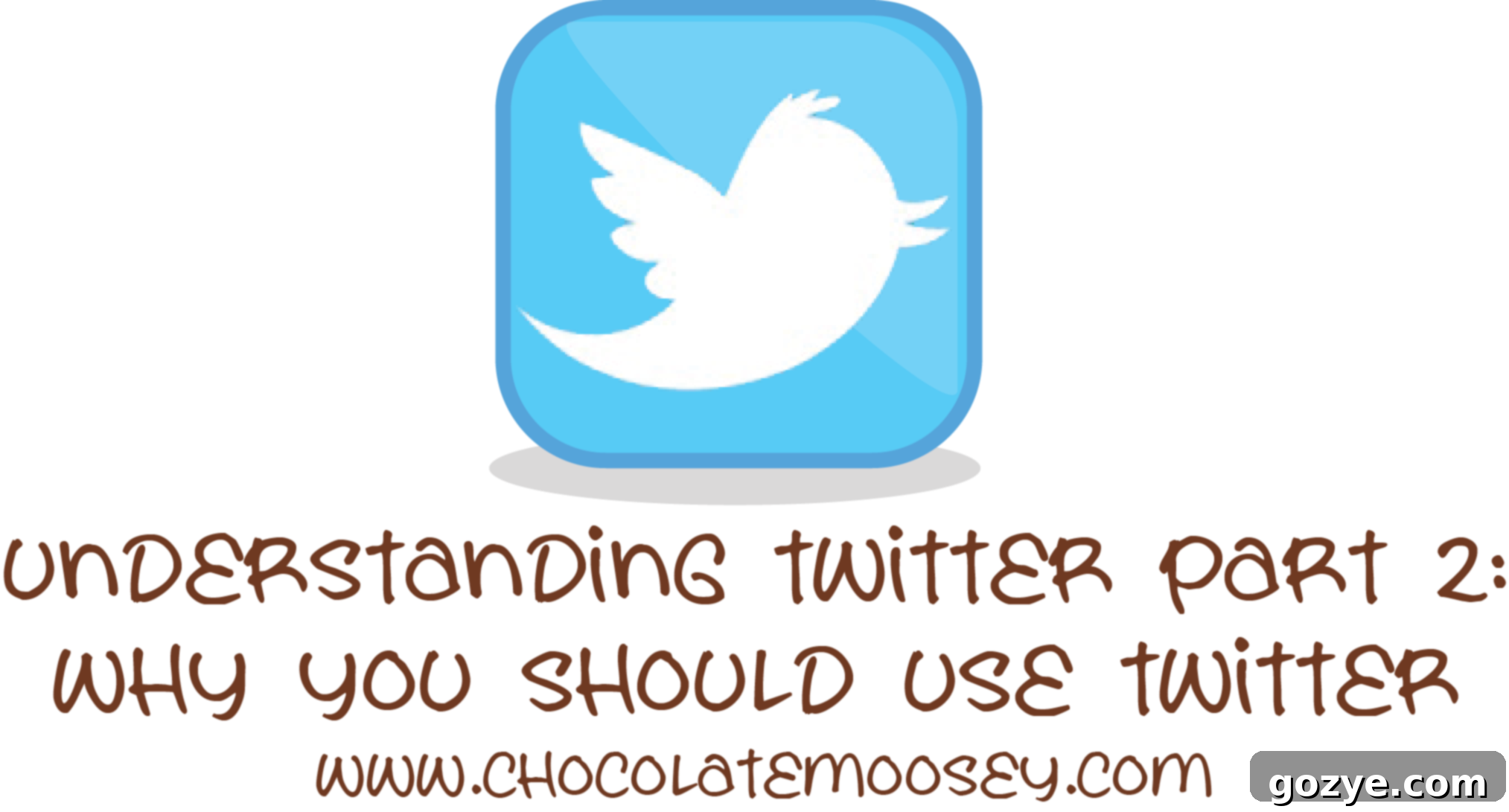Why Twitter Matters: Unlocking the Power of the Platform for Everyone
Last week, in Part 1 of our “Understanding Twitter” series, we delved into the fundamental concepts of Twitter, exploring what it is and the essential terminology you need to know. Initially, this week’s guide was planned to focus on leveraging Twitter for blog promotion. However, based on valuable feedback from our readers and a deeper consideration of the user journey, we’ve decided to adjust our focus. It became clear that before diving into advanced strategies, many users first need to grasp the compelling reasons why they should even consider joining Twitter in the first place.
In a saturated social media landscape, with platforms like Facebook, Instagram, and Pinterest vying for your attention, it’s a fair question to ask: “Why allocate precious time to yet another platform?” This article, Part 2 of our series, is dedicated to answering precisely that. We’ll explore the multifaceted benefits of using Twitter, catering to both non-bloggers seeking connection and information, and bloggers aiming to expand their reach and engage with their audience. Prepare to discover why Twitter, despite its seeming simplicity, remains an indispensable tool for personal and professional growth.
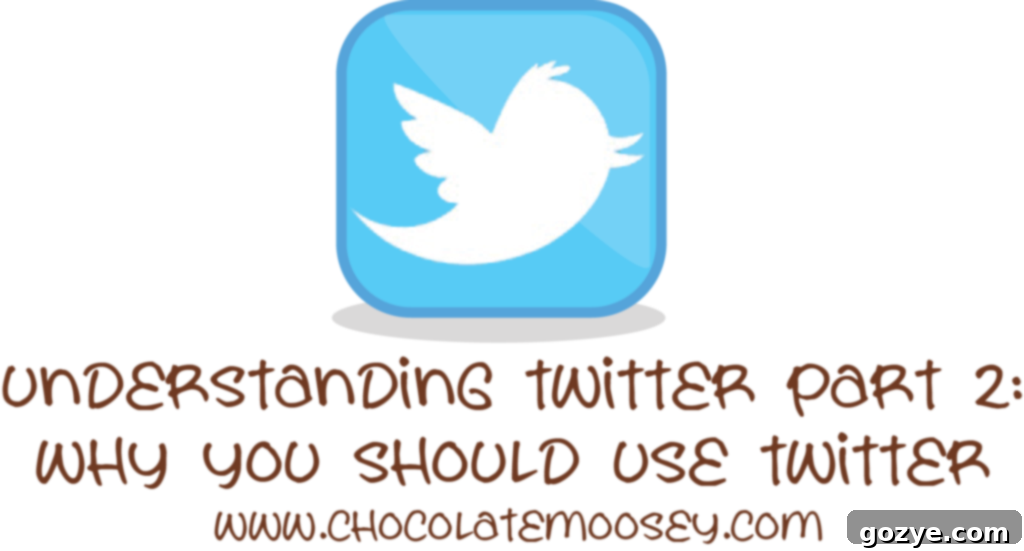
The core reasons for Twitter’s enduring relevance boil down to three primary pillars: unparalleled networking opportunities, powerful brand and personal promotion capabilities, and real-time access to current news and information. Unlike many other social media platforms that often prioritize curated content or private interactions, Twitter is designed for immediate, public conversation and rapid information dissemination. It’s like having a global town square at your fingertips, where you can easily initiate conversations with individuals, brands, and public figures, all without the need for personal contact details or worrying about geographical barriers.
This open communication fosters an incredible sense of community and support. You’ll often find a wealth of helpful advice, encouragement, and shared experiences within various niches. However, it’s also worth acknowledging the flip side: the platform can sometimes be a breeding ground for negativity or, more commonly, spoilers for your favorite TV shows or live events. If you’re passionate about a reality TV series, for instance, and haven’t watched the latest episode, it’s wise to exercise caution or steer clear of Twitter until you’re caught up. Personal anecdote: I once had a major TV show winner spoiled for me literally one minute after it aired, highlighting the real-time nature of the platform’s information flow – for better or worse!

Twitter for Non-Bloggers: Connect, Learn, and Discover
Even if you don’t manage a blog or a business, Twitter offers a rich tapestry of benefits. It’s an exceptional tool for staying up-to-date with your favorite content creators, brands, and public figures. Imagine being able to directly message a company or a celebrity and potentially receive a response – Twitter makes this a tangible possibility. It provides a more immediate and often more personal avenue for interaction compared to general comments sections or Facebook walls.
Many companies actively use Twitter to engage with their customers, offering exclusive deals, providing customer support, and announcing important updates. For example, some brands might run “Twitter-only” specials, revealing hidden menu items or discount codes that are only accessible to their Twitter followers. Others use it to broadcast upcoming events, product launches, or general news that might appeal to a broader audience. Customer service is another area where Twitter shines; companies like Verizon often monitor mentions of their brand and proactively reach out to users experiencing issues. I once tweeted about a network outage at work, and to my surprise, Verizon’s tech support promptly replied, offering assistance. Companies leverage keyword monitoring to identify and address concerns, even if they aren’t directly tagged in a tweet, demonstrating the platform’s power as a real-time feedback loop.

If you’re a follower of niche interests, such as food blogging, Twitter is an endless source of inspiration. You’ll discover countless new recipes, culinary tips, and food photography from talented creators. Moreover, most bloggers are genuinely happy to interact with their readers. If you have a question about a recipe, a substitute ingredient, or simply want to share your experience, a tweet can often get you a direct answer. While responses may not always be instantaneous, the majority of content creators value reader engagement and will make an effort to reply. Bloggers often form networks themselves, making Twitter a great place to get recommendations for other experts if your initial contact isn’t specialized in your query. For instance, if you ask me about Mexican cuisine, I can happily connect you with several fantastic bloggers who are experts in that field. We thrive on feedback, both positive and constructive, so don’t hesitate to share your thoughts, whether it’s a successful recipe outcome or a concern you encountered. Even a simple “hello” is always appreciated!
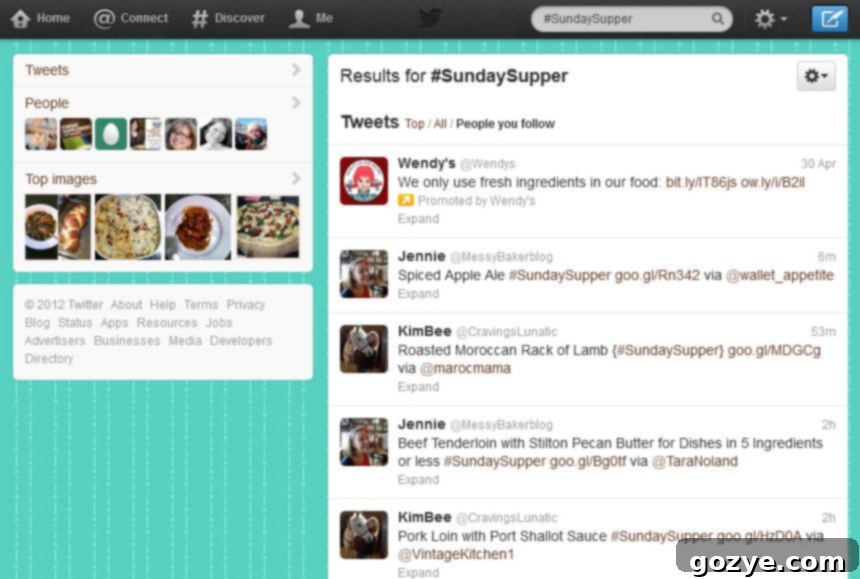
Beyond direct interaction, Twitter is also an excellent platform for finding and connecting with people who share your specific interests. The search function is incredibly powerful; simply type in a keyword like “photography,” “gardening,” “gaming,” or “travel,” and you’ll find a community of like-minded individuals and relevant discussions. Hashtags, identifiable by the ‘#’ symbol, are another crucial tool for discovery. By following a specific hashtag, such as #Chopped during a live Food Network episode, you can join a real-time global conversation with others who are watching and reacting to the same event. This ability to instantly tap into collective experiences and discussions makes Twitter unique for community building around shared passions.
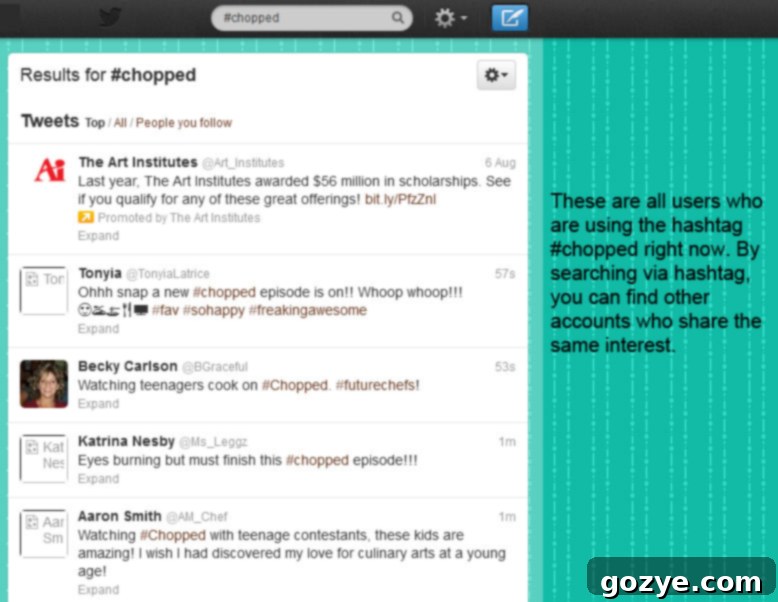
Furthermore, Twitter stands out as a prime source for staying current with news and global events. Whether you’re interested in a particular industry, such as your career field, or prefer to follow local news stations, Twitter provides immediate updates. When significant world events unfold – be it a breaking news story, a celebrity passing, political debates, or major cyberattacks – I often find out about them first through other users on Twitter. The platform’s real-time nature means that information spreads rapidly, often ahead of traditional news outlets. I once joked during a political convention that there was no need to watch it live, as every notable quote and moment was being tweeted instantaneously by countless users. This makes Twitter an unparalleled tool for monitoring current affairs and understanding public sentiment as it evolves.

Twitter for Bloggers: Building Community and Amplifying Your Voice
For bloggers, Twitter is far more than just another social media channel; it’s a dynamic platform for fostering genuine connections with your readership and expanding your blog’s influence. While staying updated with fellow bloggers and companies is valuable, the true power for content creators lies in engaging directly with the very people who consume your content. Building a strong bond with your readers is arguably as crucial as, if not more important than, the quality of your content itself. Consider the principles of customer service: a positive experience cultivates loyalty, whereas a negative one can lead to disengagement and even public criticism. The digital realm amplifies these effects.
It’s vital to be accessible and responsive. Readers who feel heard and valued are more likely to become dedicated followers, share your content, and advocate for your brand. Conversely, a lack of responsiveness can be detrimental. I’ve personally encountered situations where a blogger, despite attempts to reach out on multiple occasions, consistently failed to reply, while engaging with others. Such experiences can lead to a sense of being ignored and a reluctance to support their work. While no one is perfect – I too sometimes forget to thank every retweet or share (and for that, I am truly grateful!) – it’s paramount to ensure that if a reader asks a question, they receive an answer, even if it’s simply an “I don’t know.” Prioritizing reader interaction cultivates a loyal community that feels valued and connected to the human behind the blog.

Beyond fostering relationships, Twitter serves as an exceptionally powerful tool for promoting your blog and expanding its reach. Your followers are on Twitter specifically to stay informed about your latest posts, but also to gain a more personal insight into you as an individual. Sharing snippets of your personality, behind-the-scenes glimpses, or even just daily thoughts helps humanize your brand. People naturally connect more deeply with content creators they perceive as authentic and relatable. Think about the accounts you personally follow: Is it for their awe-inspiring recipes, their charismatic pet photos, or their insightful and witty commentary that you constantly want to share? Whatever the reason, remember that your readers are likely seeking similar qualities in your presence.
When using Twitter for promotion, it’s crucial to adopt a reader-centric perspective. Instead of just broadcasting links, think about what value each tweet offers to your audience. How does it spark interest, solve a problem, or entertain? Share your posts strategically, but also engage in conversations, ask questions, and retweet valuable content from others. This balanced approach not only drives traffic back to your blog but also establishes you as a valuable voice within your niche. We’ll explore more detailed strategies for promoting your blog on Twitter in an upcoming post, but always keep in mind that authenticity and reader engagement are the cornerstones of successful amplification.
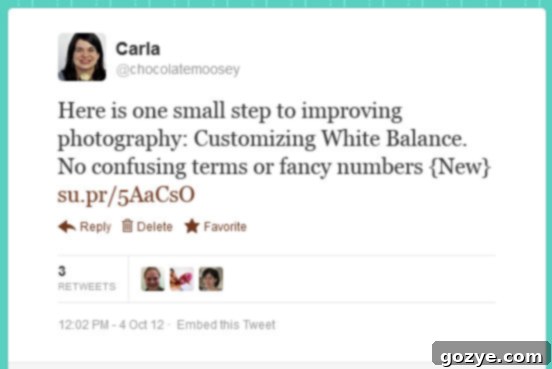
Conclusion: Embrace the Twitterverse
This concludes Part 2 of our exploration into why Twitter should be an integral part of your online activity, whether you’re a casual user, a dedicated professional, or a burgeoning content creator. We’ve covered its unique advantages in networking, brand promotion, and real-time news dissemination, highlighting its utility for both non-bloggers seeking connection and information, and bloggers aiming to cultivate a vibrant community and amplify their message. Twitter, with its emphasis on immediate interaction and concise communication, offers a distinct value proposition that sets it apart from other social media platforms.
Have these insights convinced you of Twitter’s potential? Or do you still harbor questions about how it can specifically benefit your goals? We encourage you to reflect on the opportunities Twitter presents for connection, learning, and growth. Be sure to check back next week for Part 3, where we will dive into more practical tips, tricks, and etiquette for effectively navigating and leveraging the Twitter platform!
